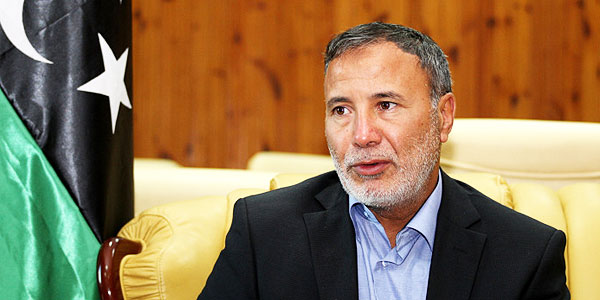 Geoff Porter’s op-ed in the International Herald Tribune provides an outstanding discussion on Libya’s new electoral law (view the law in Arabic) and its implications for the government’s ability to democratically represent citizens, encourage political unity, and further disarmament, demobilization, and reintegration (DDR) of former fighters. In sum, Porter highlights concerns that surround the law’s exclusion of military personnel from national suffrage. The United Nations Support Mission in Libya (UNSMIL) also places emphasis on this shortcoming (see para 3), as well as the law’s need to better address internally displaced persons (IDPs).
Geoff Porter’s op-ed in the International Herald Tribune provides an outstanding discussion on Libya’s new electoral law (view the law in Arabic) and its implications for the government’s ability to democratically represent citizens, encourage political unity, and further disarmament, demobilization, and reintegration (DDR) of former fighters. In sum, Porter highlights concerns that surround the law’s exclusion of military personnel from national suffrage. The United Nations Support Mission in Libya (UNSMIL) also places emphasis on this shortcoming (see para 3), as well as the law’s need to better address internally displaced persons (IDPs).
As Porter points out, it is easy to understand the National Transitional Council’s (NTC) intention behind excluding the military from national elections due to concerns vis-à-vis Libya and other Arab states’ histories with military interference in governance. This can be highly problematic, however, because the NTC will (and should) be looking to encourage select armed parties to disarm and reintegrate into Libya’s future armed forces. Thus, the new electoral law provides a negative incentive for militias and armed belligerents to enter into the DDR process. In short, it may be less appealing for Libyans to enter the armed forces, rather than remain in militias, extra-judicial armed groups, or even armed opposition groups.
Another point for emphasis is that security sector reform (SSR) should look to make security services (intelligence, armed forces, police, etc.) accountable to democratic leadership. With this, accountability is supposed to go two ways. All citizens, including members of security services, select representatives through elections, and those representatives guide, shape, oversee, and ultimately command the security services. Simply put, the security services must not feel that they are excluded from the process of choosing representatives – in essence excluded from society – when those very same representatives will be responsible for the members’ lives and actions.
A secondary point to examine is to what extent would excluding the military from national elections actually safeguard Libya’s democracy? First, will there be a unitary Libyan military that will be able to establish de facto control or influence over national elections? In answer, no, the NTC does not envisage a large, omnipotent military. And if the military will not have such influence, then what methods could the military use to affect the political process? It is clear that the greatest, immediate threat the military will serve to national governance is in the form of a localized force that is ready to commit a coup d’état. An example of how one should safeguard against military coups, consequently, can be seen in the US. There is no form of national, tangible protection; rather, socio-cultural ideals, which the greater majority of Americans hold, protect the national government. We all agree that despite how bad our rulers may be, or how much we disagree with them, we will not use force to unseat them.
So, what is the NTC doing to encourage socio-cultural ideals that involve national unity, inclusiveness, and support for democratic representatives – excluding the military from the voting process? The same goes for accounting for the needs of IDPs. IDPs will likely remain displaced for some time, whether due to economic, conflict, or political factors, but the state must do its best to ensure that they are included in the political process.
For emphasis, DDR and electoral processes are just beginning in Libya, but beginning them with such a myopic policy does not bode well. Additionally, the caveat excluding members of the armed forces from national elections was not in the draft version of the law.
(Photo Credit: World Bulletin 20 December 2011 photo of Libyan Defense Minister Osama al-Juwali)